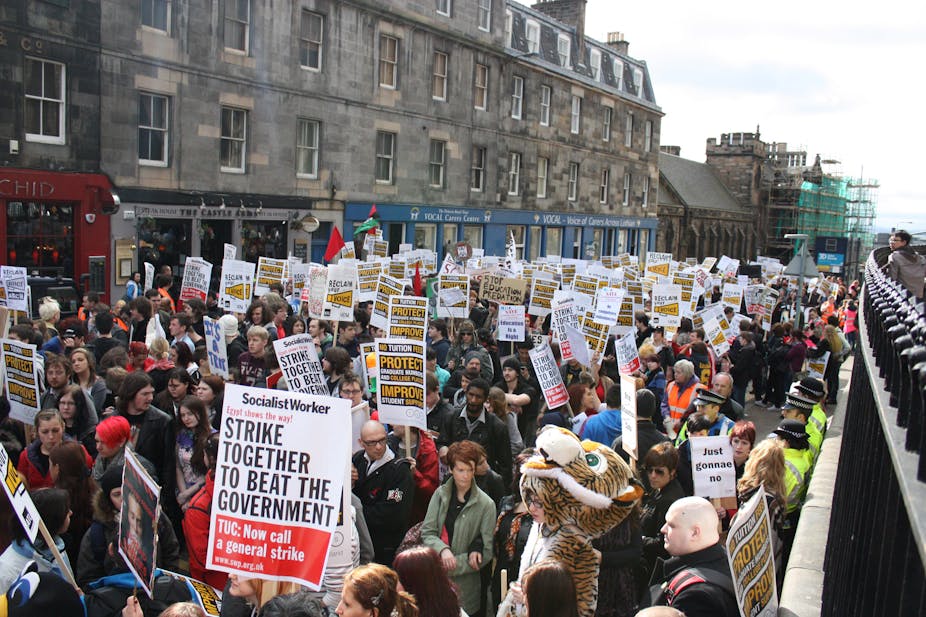Chancellor George Osborne has delivered his last budget before the September referendum in Scotland. He did so with one eye on the UK election in May 2015. But the other was firmly focused on the Scottish referendum.
There were a number of measures that had direct relevance to Scotland. The freezing of duty on whisky, though unlikely to have a significant effect on either production or consumption, will be of symbolic value to the no campaign.
The postponement of the rise in fuel duty will be welcomed in rural parts of Scotland where public transport is almost absent. The lowering of air passenger duty on all long-haul flights to that currently charged on flights to the US may help Scotland’s inter-continental connectivity.
There were also measures focused on those traditionally seen as most likely to vote – pensioners. The 10p tax rate on savings was abolished. The tax-free savings limit on ISAs was increased from £10,000 to £15,000.
But the most radical measure was the change in pension regulation, which means that members of defined contribution pension schemes no longer have to buy an annuity on retirement to provide them with a regular income for the rest of their lives. The 2014 budget removes this stipulation, allowing them to invest their pension as they see fit.
This is likely to prove popular with those coming up for retirement, though it may well have adverse consequences for those who are unwise or unlucky with their investments. The change will also mean a loss of business for life assurance firms, some of whom have significant operations in Scotland. Standard Life’s share price fell by 6% after the chancellor sat down, before settling around 3% below its pre-budget level.
In the context of the referendum, largesse to pensioners may not have been the best strategy. Older people with significant savings are likely to vote, and most likely to vote no irrespective of changes to pension regulations or changes in the savings rules.
Many first-time voters
Turnout for the referendum will be well above recent parliamentary elections. The latest estimate is that 78% of the electorate are certain to vote.
Hence there will be a large group voting for first time. They are likely to be relatively disadvantaged. Given that the austerity programme still has a long way to go, with government spending on goods and services due to be cut by almost 17% in real terms between 2013-14 and 2018-19, they may be wondering how they might benefit from the budget. Clearly there will be a continuing reduction in support for the public services on which many of them rely.
The spending on goods and services pays for the running costs of schools, hospitals, local government and so forth. The majority of these costs go to pay the wages of public sector workers. As a result, there will almost certainly be further wage freezes or cuts and reductions in public sector jobs in Scotland.
Who will the losers blame for the cuts? Difficult to predict, but the Coalition is taking quite a gamble if it is assuming that the Scottish government will be seen to bear some of the responsibility.

